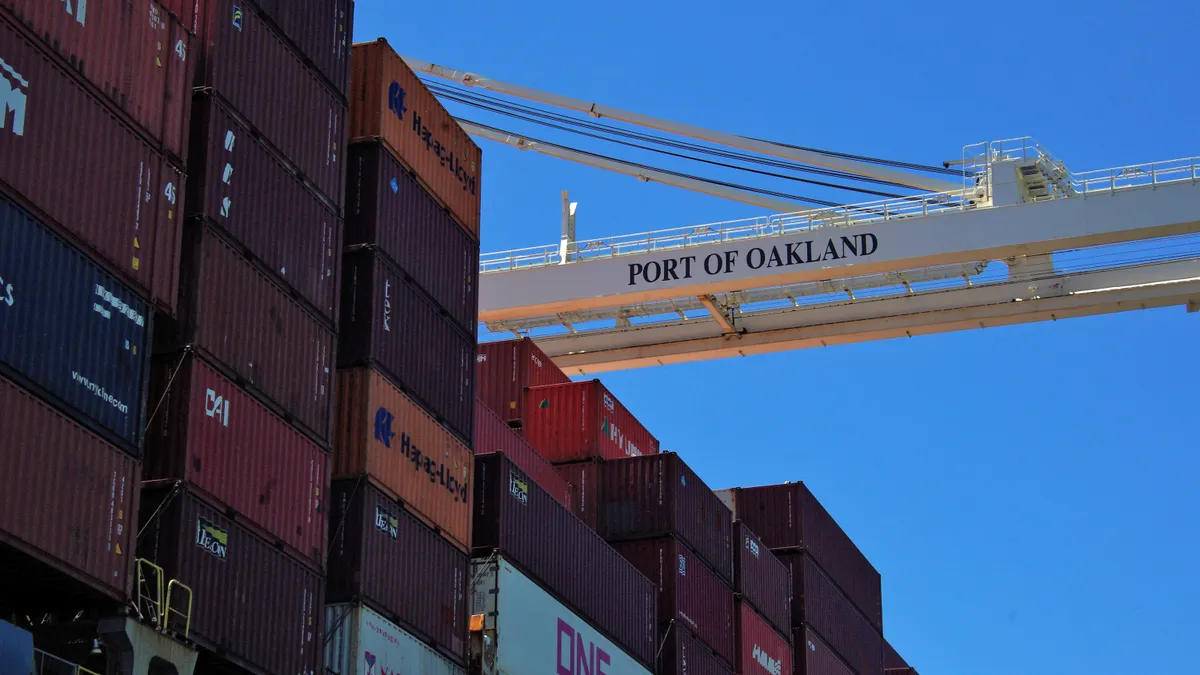The Port of Oakland received $3 million in funding from the California Containerized Ports Interoperability Grant Program in July.
The port will use funds from the grant program for two separate projects aimed at enhancing its existing Freight Intelligent Transportation System (FITS). The system provides real-time traffic, terminal vessel and other data for shippers, ocean carriers, freight forwarders, trucking companies, warehouse companies and port authorities, according to the Port of Oakland.
The first project will focus on upgrading FITS features with new data sets and processes to distribute port-related information.
The upgrades are expected to expand data availability, make data more accessible, decrease truck turn times and increase intermobility while reducing emissions, according to the grant program report.
Port of Oakland receives $3M to enhance operational capabilities
| Task Description | Award Amount |
|---|---|
| Travel, budget, reporting, etc. | $210,000 |
| Cloud storage capacity | $70,000 |
| Centralize data collection | $300,000 |
| Asset management, design and development | $300,000 |
| Port-only private view development | $484,990 |
| Agnostic portal | $600,000 |
| Terminal 1-3 | $525,000 |
| Mobile application/integration | $350,000 |
| Project management | $150,000 |
SOURCE: California Containerized Ports Interoperability Grant Program
The second project will create a unified marine terminal appointment system that works in union with FITS.
The Port of Oakland’s three marine terminals use the same appointment system but with different interfaces, according to the grant report. The port said it wants a consistent and seamless experience for truck dispatchers, drivers and beneficial cargo owners, according to the grant report.
New features for the new appointment system aim to provide seamless data exchange using a centralized hub while enabling real-time transfer of appointment data, cargo information and scheduling details.
The port expects the new features to increase appointment intake, improve appointment distribution, decrease missed appointments, accelerate the velocity and movement of goods, and enhance drayage efficiency.
The Port of Oakland is one of several ports, such as the Port of Los Angeles and the Port of Long Beach, to receive funding that will support better data sharing and integration for improved operations and cargo flow.













